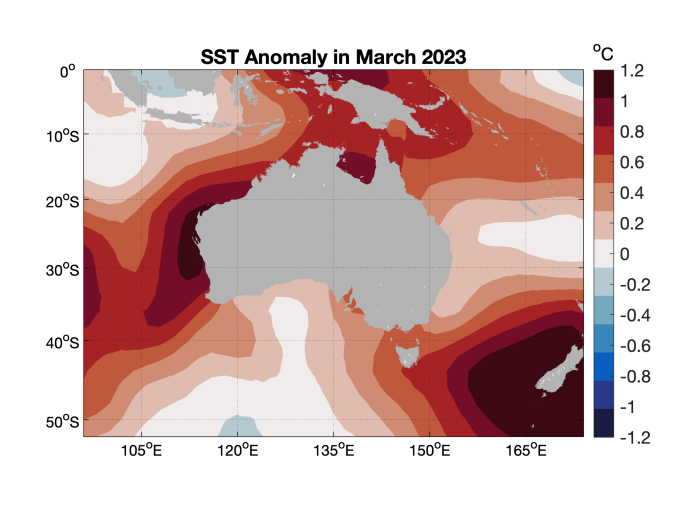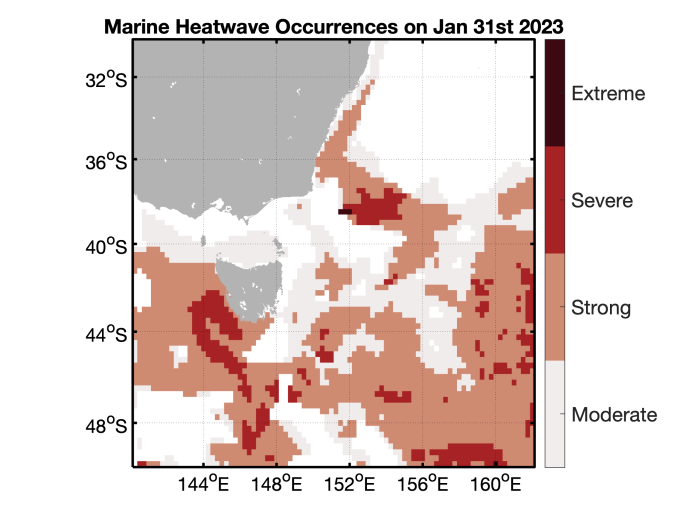Throughout 2023 ocean temperatures were unusually hot in Australian waters. Each month of the year was ranked within the top 60% for ocean temperature. March, in particular, was the fourth hottest ever for Australian waters, with ocean temperatures being on average 0.5°C higher than a normal March. Autumn water temperatures were especially high in Queensland, reaching up to 0.8°C hotter than normal.
The high ocean temperatures have meant that 2023 has witnessed a concerning number of “marine heatwaves”– discrete and prolonged events of extremely warm ocean temperatures. Just like a heatwave on land, these extended periods of unusually warm ocean temperatures tend to have negative impacts on marine ecosystems, and can also negatively impact aquaculture and fisheries.
In 2023, there were some marine heatwaves around Australia that persisted for over three months. A marine heatwave off eastern Tasmania, between December 2022 and May 2023, saw ocean temperatures remain more than 2°C above average over an area greater in size than 17 Tasmanias. It was the fourth most intense marine heatwave seen since satellite records began.
Two extreme marine heatwaves occurred in Queensland, with temperatures up to 1.5°C hotter than normal persisting for five months. The first, from March to August in north-east Queensland, was the second-longest duration for this region. The second, which occurred from 9th March to 5th August in south-east Queensland, is recognised as the third longest on record.


These marine heatwaves off the coasts of Tasmania and Queensland are especially concerning for Tasmania’s kelp habitats, and for Queensland’s coral ecosystems in the Great Barrier Reef – two “foundational” marine species that provide habitats for the rest of the marine ecosystem. The detrimental impact of heat stress upon these vitally important habitat-forming species is well documented.
Research contacts:
Dr Zijie Zhao, zijie.zhao@utas.edu.au Dr Christopher Aiken, christopher.aiken@utas.edu.au Dr Ramkrushnbhai Patel, ramkrushnbhai.patel@utas.edu.au Professor Neil Holbrook, neil.holbrook@utas.edu.au
